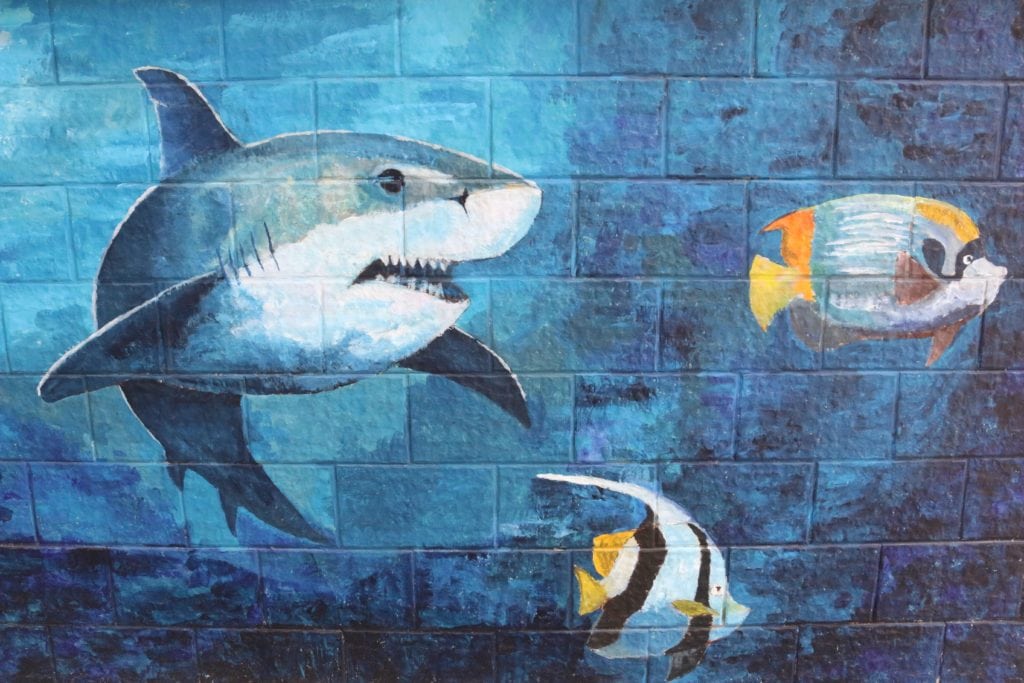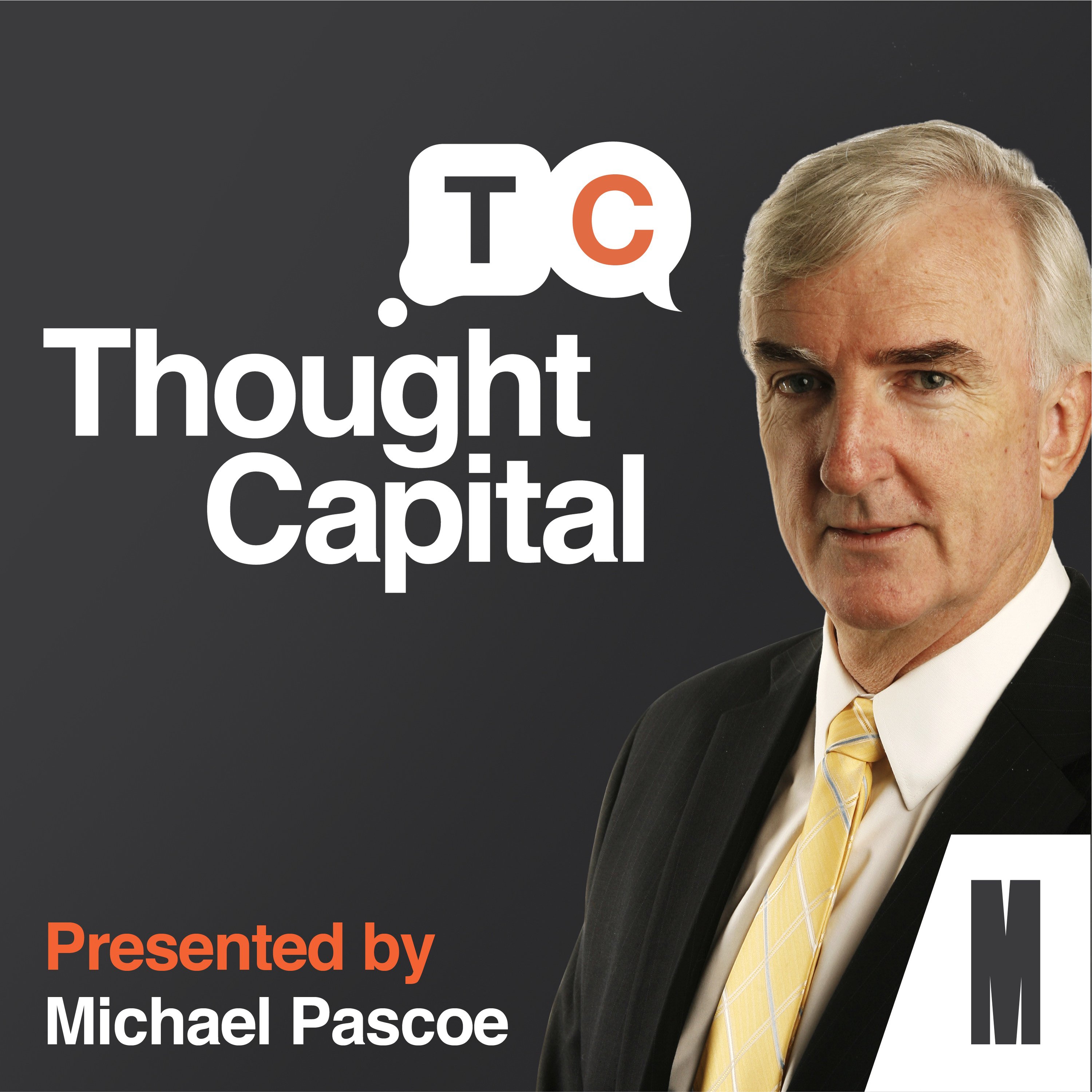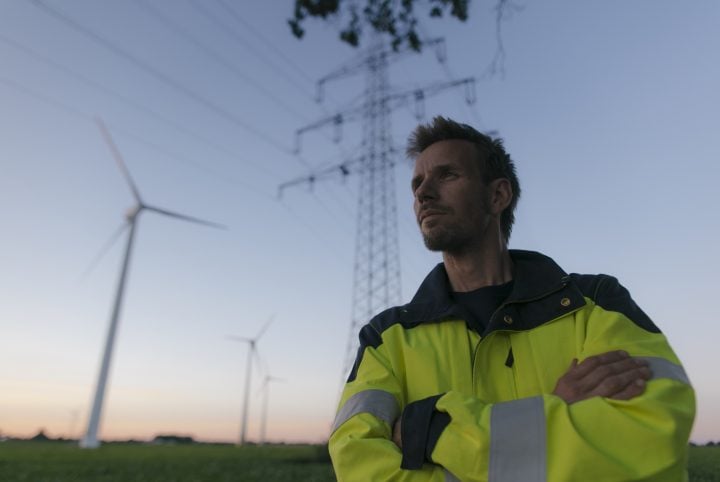Amidst the welter of daily commentary, it’s easy to lose perspective about the connections between the economy, international relations, digital disruptions, and mental health, and how all are impacted by the pandemic. We’re here to help you see the big picture, how it all fits together, how all the facets of this crisis affect us all.
Much of the federal political focus for rebuilding the economy is on manufacturing and construction, but it’s the service sector that has been hit hardest where the scarring is worst, where the losses are greatest. With the choice being to adapt hibernate or die, many small businesses have done their utmost to keep going to change, to survive. COVID-19 changed consumer behaviour, so businesses have had to change too. Most obviously online shopping already a rising trend has soared, and that’s just one part of the service sector. So what does it take to survive in the service sector during this pandemic? Professor Tracy Danaher of the department of marketing. Welcome.
Tracey Danaher: Hi, Michael, thanks for inviting me to chat about this today. It’s a very interesting question, because as you can imagine, COVID was so unexpected and it’s had wide ranging implications for the service sector, with a lot of organisations having to find ways to pivot very quickly. So what we see is in some ways, a spectrum of responses to the COVID crisis, we see organisations who are able to make minor adaptations to the services they provide to customers. In Melbourne we see this in the cafes that are take away only, they’ll have hand sanitiser available. There’s a 1.5 meter social distancing marks. So it made minor adaptations that have allowed them to really keep their service viable. Then on the other end of that, we have services that have completely transformed. Some of them have realised that they can do things that are innovative and cutting edge, and that they will continue to do into the future that represent new revenue streams that wouldn’t have existed to them if COVID hadn’t of occurred.
Michael Pascoe: Such as?
Tracey Danaher: My favourite example is the wine industry. You sort of would think that you need to be present to get the true impact and that true experiential component of a Cellar Door wine tasting experience. Very quickly, they realised that that wasn’t going to happen because of the COVID restrictions. So they very quickly started to use social media and do live streaming of wine tasting events, and they created a whole range of products around this. They sent out small bottles, they would then arrange a time and a place to talk to their customers and talk to their wine makers and essentially have the Cellar Door experience and the wine tasting experience done virtually.
What’s interesting about that is that a lot of wine clubs have now totally embraced this concept. And so now we have a situation where a wine maker is sending products all over Australia and therefore targeting that market that traditionally would have had to have come to them at the Yarra Valley. And therefore, the market is so much bigger. One of the wineries I spoke to was actually sending wine tasting packages to California. So now they were reaching people in America. This will augment the services that they provide going forward into the future and be a potentially very profitable, additional revenue stream. That the wine makers have said to me, they just would have never thought was possible because in their head, the customer had to come to the Cellar Door to embrace this type of experience.
Michael Pascoe: Have you been working with American colleagues on how some in the service sector have transformed to adapt to the new situation. What did that study find?
Tracey Danaher: Some of the things we looked at there, we took a very global perspective. Some services find it very hard to adapt, so if you think of services where you do have to physically go to receive the service being provided, doctor, going to have your haircut for example. Those services are the ones, other than the incidents of telehealth, that have really suffered the most in the pandemic. We then found on the other end of that was the services that are able to transform themselves. And in the US there’s a lot of really large management consultancy companies that are embracing huge innovations in technology delivered by companies like Service Now that basically allow you to manage your workflow much more productively.
Corporate companies talking about reducing their commercial footprint by up to 20 or 30%, they envisage an entirely new way of working where the worker won’t come in to work eight hours a day, 10 hours a day, five days a week. There’ll be much more flexibility in that workflow, all managed by these digital platforms that can tell across an organization with a hundred different branches and 10,000 employees, exactly what day David is going to come in and what hours you’re going to come in. It can organise deep cleaning of shared spaces between employees coming in and out of the organisation and collate all that and manage all that for them. So from big to small organisations the impacts are very, very broad.
Michael Pascoe: COVID-19 hit the services sector hardest, and it’s the sector that’s expected to suffer the most economic scarring even after the economy opens up again. But it hasn’t all been doom and gloom. You might think of services sector charity would be suffering double jeopardy, but Monash Business School accounting experts have been monitoring one such operation that could prove you wrong. And the accountants claim, it’s the accounting that made the difference. Well, they would claim that wouldn’t they. Martin Halphen, you are the CEO of the Fruit Box. What do you do?
Martin Halphen: The Fruit Box is a business that commenced in 2000 in Melbourne essentially was delivering fruit to work places as an alternative [inaudible] snack. And in 2009, we leveraged off our infrastructure and our database and we started delivering milk. Forward on to 2020, the Fruit Box was doing about 35,000 deliveries to around 10,000 offices and work places is a true national infrastructure with about 300 staff where we control the whole supply chain.
Michael Pascoe: You were running a complicated business with a lot of logistics and a lot of staff involved. What happened when COVID-19 struck?
Martin Halphen: Well, we were front and centre, it hit the offices very quickly. It was quite a surreal experience in the course of around two weeks we were losing around three of 400 accounts a day. So just before the end of March, when COVID started to really ramp up, we had lost 75% of our business.
Michael Pascoe: What’s that like as a mental strain?
Martin Halphen: Well, it’s fight or flight. At that stage, nobody really knew what was happening. The governments were really just sort of taking it in like all of us were. We were very conservative. We straight away believed that having cash in the bank was the most important thing to do, so we started our plans. We started to look at our rostering, our people, and [inaudible] developing plans for the worst case scenario in protecting the cash in the bank as much as possible, that was before any government assistance was introduced. So job keeper and job seeker wasn’t… We weren’t told about that till early April, by the end of March, because we were impacted so quickly, we had plans already working out how long could we survive with the cash that we had built up over a period of time.
Michael Pascoe: Now you’ve got the Fruit Box, as well as the One Box. Where did that come from and what is it?
Martin Halphen: We came up with the concept of delivering fresh produce to families in need. It was a pilot program in 2017, which was fully funded by the Fruit Box. And out of the course of three years, it’s transitioning into a charity. It’s more than doubled its output since we commenced.
Michael Pascoe: So the Fruit Box, your business business, has lost 75% of its customers. The One Box supplying food to people in need, obviously had soaring demand. How did you manage to balance the both?
Martin Halphen: Well, fortunately, some of the principles that we adapted at the Fruit Box spilled over to the One Box and we had a [Corpus] in the One Box and this year, given the difficulties we’ve been able to rely and succeed through the monies that have been donated in the past. And to be honest we’ve been quite successful in raising money during the course of the year. Currently it’s got its challenges, and I think it’s really going to amp up the need for food relief, that’s what the One Box does. And at the moment, that’s something that has drawn the attention of our foundations and corporate owners.
Michael Pascoe: I just so happened that associate professor, Ralph Kober and Dr. Paul Thambar from the department of Accounting were following One Box throughout this turbulent time. Welcome to both of you. Why were you interested in this business?
Ralph Kober: The operating model adopted by the One Box is very different to that of other food relief charities. Most food relief charities in Australia and internationally provide their beneficiaries with one-off packages of rescued food without guaranteeing future supply. However, the One Box is operating models very different. They provide their beneficiaries a weekly box of fresh produce, including fruit, vegetables, milk, and bread. And they also do this for 40 weeks a year, and it’s distributed through schools and community centres. So that was one aspect. The other aspect was the fact that the One Box program started as a CSR, corporate social responsibility initiative within the Fruit Box. And as it became more successful, this for-profit company decided to effectively spin off a charity or where we were unaware of any other sort of similar situation where a for-profit company created a charity, which they then continue to operationally and financially support.
Michael Pascoe: And what is it about the accounting of that, that is interesting?
Paul Thambar: The challenge for One Box and for in fact for all charities is to be able to accurately measure the impact that they’re having on their beneficiaries, and accounting and accounting numbers can only go so far in being able to measure and quantify that.
Michael Pascoe: What surprised you about what you saw?
Ralph Kober: The Fruit Box suffered a substantial decrease in financial revenues. So the One Box was still being predominantly financially and operationally supported by the Fruit Box and yet through this, there was that decision made to actually increase the reach of the One Box program. So we then came up with this idea of what in the literature is called financial resilience and looking at how resilient the One Box was and how it was able to expand operations.
Paul Thambar: The very idea of a charity building up a financial reserve over many years is almost alien, where the One Box has prudently used it’s finances and kept enough reserves to cope with the challenges that they were facing.
Michael Pascoe: What has One Box changed in your conception of what accounting should do in charities or has it reinforced previously held beliefs?
Paul Thambar: The literature on corporate social responsibility suggests that commercial entities just use that as a [tech] to show people that they are purpose driven to show that they are doing good in addition to making money. But here we see a free integrated CSR operation and Martin and his people talk about the One Box, it is very much integrated into their corporate business. And I don’t think we have seen that sort of corporate social responsibility operation discussed in the literature. So that’s an interesting aspect. And the other aspect is they actually use accounting. So for example, a simple thing like a target, despite the pandemic, the annual target for the One Box really hasn’t been discarded. It’s been changed, it’s been reduced because of circumstances, but the focus at every meeting and every conversation that they seem to have is on that target and trying to meet that target. Because it is not just the target, it’s what sits behind the target, the families who are in need and increasingly the new families that are coming to the schools and to the community centres, looking for support from organizations like the One Box.
Michael Pascoe: It seems there is light at the end of the tunnel. Victoria is opening up, borders are being relaxed. Martin Halphen, how has the pandemic affected both the business and the charity on the other side?
Martin Halphen: Things are more uncertain than ever before. I think that we are entering a new period where things are meant to be opening up, but I do really feel that confidence is shattered, not just in Victoria, but in the wider community. And I think that there’s going to be a slow reveal of the impacts that it’s going to have on different industries, particularly when government packages [inaudible] in March. But from my point of view, the message that has probably been reinforced for us is let’s stick to our game plan. Let’s remember what served us well in the past, our strategy of protecting cash at the bank, we believe is going to give us options down the track. I think we need to really understand what we’re dealing with, what the level of unemployment’s going to be, what the level of need will be in the community. And then once we understand that, I think we’ll adapt our strategies accordingly.
Michael Pascoe: And for the business, the Fruit Box, it seems a lot of people are suggesting people will continue to work from home. There are a lot of empty floors of CBD offices around. What’s that doing to you?
Martin Halphen: Over the last six months, we have acquired business on the back end of a lot of competitors, smaller local competitors exiting the market, or just not being able to up their doors. I feel unfortunately it’s going to be survival of the fittest. I think that the businesses that are well leveraged and cashed up are going to survive the winter so to speak, and they’re going to be there to gradually make their way back to pre-COVID levels.
Michael Pascoe: A more broad question for the three of you. Being optimistic, we get a vaccine at some stage, or the virus dies out. How long does the scarring last? How long do the lessons last before we go back to her old ways?
Paul Thambar: That’s an interesting question. We will go in some ways that regress back to some of our old bad practices. I mean, that’s being human, but I think we will also learn a few new things. I think the fact that you don’t have to be… Have your staff seated next to you in the same office so that you can eyeball them and make sure that they’re actually doing work. I think we’ve grown beyond that. There’s certainly going to be a greater valuing of customers and staff. I hope in terms of the value that they bring to the organization.
Ralph Kober: I do think there probably will be some lessons learned in terms of conservatism, companies not being maybe so highly leveraged, especially if, unfortunately in the future, these pandemics or these crises become more common. It will be more important to actually have your balance sheet in a position where you can cope with this increased level of uncertainty.
Martin Halphen: I think there’s going to be a fair bit of pain. And I think that what’s going to happen is, it’s going to force businesses to become a lot more efficient with their resources and what they’ve got. So I think we’re going to go through a positive period of efficiency and bringing it back to something like the One Box and the people that we help with the One Box. And a question I’ve always had is that the indicators and the reports and the studies are showing that there’s one in five, up to one in five Australians that are having a problem with food insecurity on a month to month basis. And my question is that when people are hungry, how can we as a community and a country be as productive as we could be. Dealing with those social problems is going to be one of the real focus points of the transition when it comes to our efficiency.
I’d like to think that we’re going to become a bit more local focused. I think that there’s a lot of opportunity locally, and I think that what’s happening with this pandemic, by the pure fact that we have to shut our borders as a result of that is that we really have to look from within and address some of the issues that we have within and move forward with real opportunities that we have. So from my point of view is that there’s going to be a correction period, but I think that as a result, we’re going to make our way out of it in a much more humble, realistic and productive way.
Michael Pascoe: The service sector obviously covers an enormous variety of industries from deep cleaners to travel agents from aged care to conference organizers. Professor Tracy Danaher, as you say, some can adapt some can’t. Those that can’t you expect most of them to fail.
Tracey Danaher: I would be much more optimistic than that. I think there’s definitely going to be a shake out of the service sector. There’s no doubt that, if we in Melbourne for example, Australia will go up and down our high streets. We see the proliferation of services and retailers. There’s probably consequently going to be a shake out of some of those businesses, but I think we should be reasonably optimistic about the future of services. Particularly in Australia, where the government has stepped in and provided a lot of support. If you compare that to the UK and the US for example, there’s a lot more support for our service industries than there has been elsewhere.
Michael Pascoe: Job keeper has certainly been a help. Most of the political talk in going forward has been about manufacturing and construction, rather than the services side. Despite services being the biggest sector of the economy, will services need another wave of support?
Tracey Danaher: Yeah, I actually think they will and particularly for the smaller service businesses, the [inaudible] service businesses that make up that big chunk of the service economy that will definitely be needed into the future. And it’s going to be ongoing, I think, to expect service businesses, to simply open up and be able to regain their foothold in the market and even potentially pay back debt that they’ve accumulated during the lockdown phases.
Michael Pascoe: One adaption, the services sector, that’s a win can also turn into a loss in another part of the sector. Working from home as a win, except it certainly comes at the cost of the commercial real estate sector. What’s the balance?
Tracey Danaher: I think we’re seeing a double edged sword in so many elements that are coming out of COVID. If you think of your traditional sit down large restaurant, they have really suffered and struggled during the lockdowns in Melbourne. If you think of a small takeaway in your high street, they didn’t really cater to sit down. They’ve actually had the best year that they’ve ever had. Even within hospitality and food service, we see some ends of that spectrum really suffering and other ends actually thriving. There are going to be winners and losers, and it’s going to be very different across the industries. It’s very hard to predict how that’s going to fall out.
Michael Pascoe: Your message overall is optimistic of people being inventive, being adapted when they need to be. What about the pessimistic side? What about the services that have not been able to adapt?
Tracey Danaher: I do have a hopeful message because I think I see communities rallying to support their local businesses. People going out of their way to buy takeaway or buy an extra coffee or whatever it may be. I think the human spirit is an incredibly optimistic one. People will try to rebuild. So I am optimistic. I’m very aware of the struggles that businesses are going through, but if we don’t have optimism for the future, then that’s a very difficult place to be.
Michael Pascoe: Tracy Danaher thanks for talking to us.
Tracey Danaher: Thanks Michael.
Michael Pascoe: Will our cities ever look the same with so many people working from home and the business districts deserted. A lot of people stopped commuting and what will be the impact on the price of your house? Tune in to the next episode of Thought Capital, connecting the COVID dots. Thought Capital is written and produced by Tina Zenou, Editor is Nadia Hume. Executive producer, Helen Westerman. If you’d like to find out more, go to monash.edu/business. Look for us wherever you listen to podcasts.




